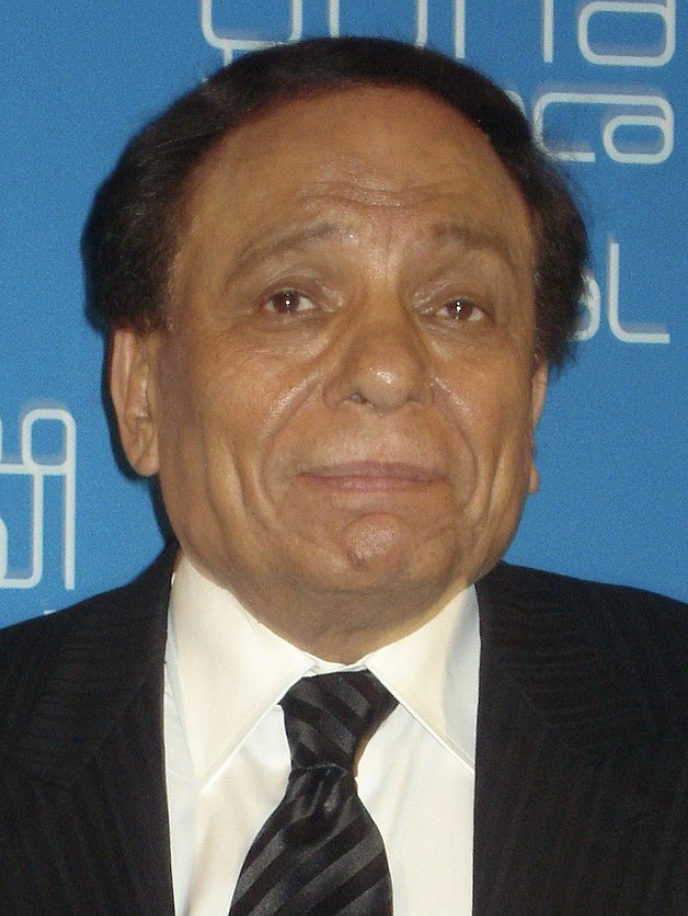Adel Emam: A Man of No Party, Just a Patriot
By: Malak Hassouna / Arab America Contributing Writer
On January 21, 2024, the fourth annual Joy Awards in Saudia Arabia took place, bringing together artists from all over the Middle East to celebrate their achievements. One of the moments that stole the night was the tribute video to Adel Emam and his receiving the Arab Art Leader Award. While he was not present to accept the award, his sons received it on his behalf: Rami, a well-known director and producer, and Mohamed, who followed in his acting footsteps. Upon acceptance of the award, they confirmed his retirement after a 62-year career and assured the world that he was in good health and was choosing to spend his remaining years with the family.
Adel Emam reigns supreme as a comedic titan and cultural icon, “to study Egyptian history; one must look at Adel Emam”. Born in 1940, his career has spanned over six decades, etching his name into the fabric of Arab cinema and theater. Through the many regimes he endured during the six decades of his career, he managed to stay out of the political parties and not choose or endorse a party. Nevertheless, this did not stop him from using his sharp wit and poignant portrayals to tackle social and political issues head-on, prompting laughter and introspection amongst regional audiences.
Born in 1940, they started acting in 1962 during Adel Nasser’s reign, rose to fame during Sadat in 73, and became a powerhouse during Mubarak. He appeared in over 103 movies and 10 plays throughout his career; later, his sons joined the industry alongside him. During these pieces, he appeared 38 times as the poor hero, 23 as middle class, and 14 as wealthy. He believes in fighting for the most oppressed of the time, so he sympathizes and highlights the stories of the poor more than other roles. Even when he takes on the role of a wealthy or middle-class man, it sends a message regarding bribery or election corruption, as he addressed in Morgan Ahmed Morgan.
Adel Emam touched upon subjects that people had not dared to as well, such as the unnecessary division and tension in the country between Muslims and Christians. He hoped his movies would unite citizens to act as one under their country’s name. Additionally, leading up to the Arab Spring, he released a series of films addressing the political corruption the country was suffering from under Mubrauk’s regime. While he was close to Gamal Mubarak, he did not have influence and did not want to be associated with the administration many suffered under. He was worried that if he remained close to Gamal, he would lose his ability to be influential and speak up regarding the people’s issues during the Arab Spring.
During Morsi’s short-lived presidency, Emam was brought up on charges that he was defaming religion and was sentenced to three years in prison and a monetary fine. The case aimed to scare artists from creating work against the presidency by going after “The Leader” and making an example out of him; however, that did not stop him. He fought for fair elections to ensure the people of January 25, who sought democracy, kept that momentum after the Arab Spring.
Adel Emam has received impressive honors, cementing his standing as a cinematic and theatrical leader. His skill has received worldwide recognition, including the coveted Horus Awards at the Cairo Worldwide Film Festival and the Dubai International Film Festival’s Lifetime Achievement Awards. In Omaret Yakobean, he won the International Jury Award in São Paulo and Special Mention at Tribeca. He has also received distinctions such as the Honorary Award and Golden Star from Marrakech, the Golden Tanit from Carthage, and the Career Achievement Award from El Gouna, adding to his legacy. Additionally, as mentioned earlier, in 2024, he was honored with the Arab Art Leader Award at the Joy Awards, which solidified his leadership legacy.
It’s important to know that his work extended beyond the cinema and plays; he serves as a goodwill ambassador for the UN High Commissioner for Refugees, highlighting his commitment to humanitarian causes, including multiple visits to the refugee camps in Syria, Jordan, and Yemen. He dedicated his life to the Arab Cause, which was demonstrated by his numerous political stances, one of which was opposing the United States’ invasion of Iraq and condemning Israel’s Massacre of Qana in 2006. This was not the first time or the last Emam spoke up about Israeli violence; one of his shows is dedicated to showing the resilience of the region in the face of Israeli occupation and violence. Naji Attallah’s Squad premiered in Ramadan of 2012 and brought comedy and politics into our homes. We must also mention his movie The Embassy in the Building. Emam spoke up about the Palestinians time and time again. His fearlessness is unparalleled in many ways, including making fun of Obama’s ignorance during his visit to Cairo in 2009 and demanding more respect from American Presidents.

For a man who refused to pick a political party, he always remained political. His fight was always for the Egyptian people to be heard and for the Arab Cause. He classifies himself as a patriot, not a politician, which probably made him withstand five presidential changes during his career. He pushed censorship laws to the limits and fought Parliament on them repeatedly to get points across. He foreshadowed unrest in the people that would lead to turmoil in the country. All leaders in the Middle East recognize him as a symbol of Egyptian stability. His retirement does not come easy to Egyptians, and most of us do not recall a time without him on our screens. However, we are left knowing that he paved the way for the political and the personal to stay relevant in our region and continue fighting for freedom of expression within our countries. All he did for Egypt and the Arab world is probably why he is called “The Leader” in the world of Arts.
Check out Arab America’s blog here!








